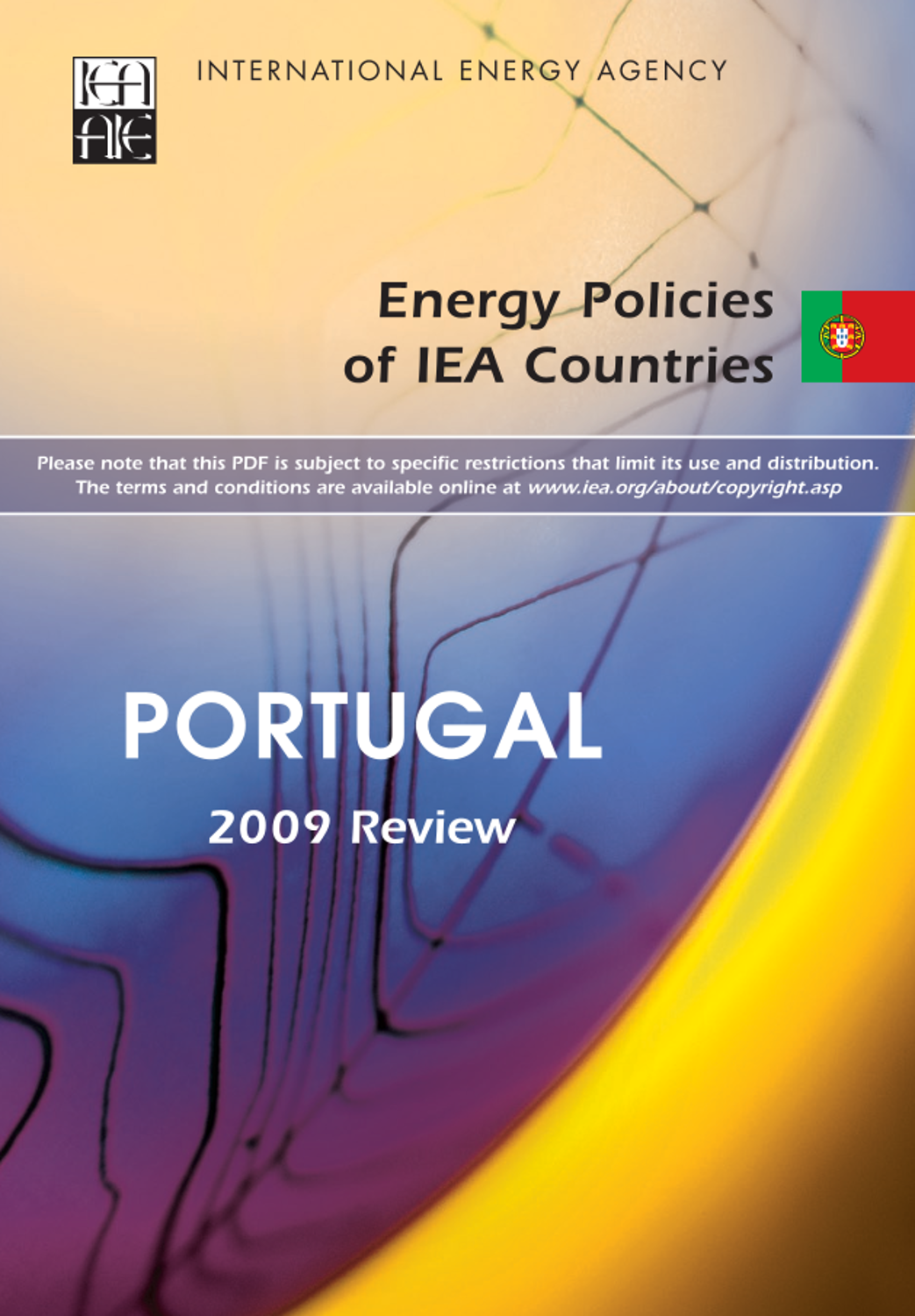
통계연감
Energy Policies of IEA Countries: portugal ... review
- 서명
- Energy Policies of IEA Countries
- 저자
- OECD/IEA
- 발행사항
- Paris : OECD/IEA, 2004-
소장정보
| 위치 | 등록번호 | 청구기호 / 출력 | 상태 | 반납예정일 |
|---|---|---|---|---|
이용 가능 (2) | ||||
| 자료실 | E203728 | 대출가능 | - | |
| 자료실 | P414561 | 대출가능 | - | |
이용 가능 (2)
- 등록번호
- E203728
- 상태/반납예정일
- 대출가능
- -
- 위치/청구기호(출력)
- 자료실
- 등록번호
- P414561
- 상태/반납예정일
- 대출가능
- -
- 위치/청구기호(출력)
- 자료실
책 소개
Portugal has made considerable efforts to strengthen its energy policy since the last IEA in-depth review in 2004. A large number of IEA recommendations have been successfully implemented, including greater diversification of the energy mix and increased energy policy co-ordination. A new National Energy Strategy, published in October 2005, identified three principal means for meeting Portugal's policy goals: the promotion of renewable energy, increased energy efficiency and competition in energy markets.
Over a short period of time, Portugal has become a leader in terms of renewable energy development. Well-designed incentive mechanisms and the adoption of ambitious targets ensure hydro, wind and other technologies will continue to grow. The National Action Plan for Energy Efficiency was enacted in 2008, and Portugal aims to implement energy efficiency measures equivalent to 9.8% of total final energy consumption by 2015. This plan complements a well-developed and co-ordinated climate change policy. Further steps have been taken towards the liberalisation of energy markets, including the innovative creation of a single operator for the transport of natural gas and electricity, natural gas storage and operation of the Sines LNG terminal.
Still, a number of challenges remain. Energy markets are not as competitive as policy makers may have wished, and energy research and development policy coordination needs to be strengthened.
This review provides sectoral critiques of existing policy and recommendations for further improvements. It is intended to serve as an indispensable guide for Portuguese policy makers as they travel along the path to a more sustainable energy future.
목차
Table of contents:
1. Executive Summary and Key Recommendatoins
PART I. POLICY ANALYSIS
2. General Energy Policy
3. Climate Change
4. Energy Efficiency
PART II. SECTOR ANALYSIS
5. Oil and Coal
6. Natural Gas
7. Electricity
8. Renewable Energy
PART III. ENERGY TECHNOLOGY
9. Energy Technology, Research and Development
PART IV. ANNEXES
A. Organisation of the Review
B. Energy Balances and Key Statistical Data
C. International Energy Agency "Shared Goals"
D. Glossary and List of Abbreviations
미리보기

Energy Policies of IEA Countries.pdfPDF
첨부
| 번호 | 제목 | 유형 | |||
|---|---|---|---|---|---|
| 1 | Energy Policies of IEA Countries.pdf | 6.3 MB |
- 1Energy Policies of IEA Countries.pdfPDF6.3 MB
